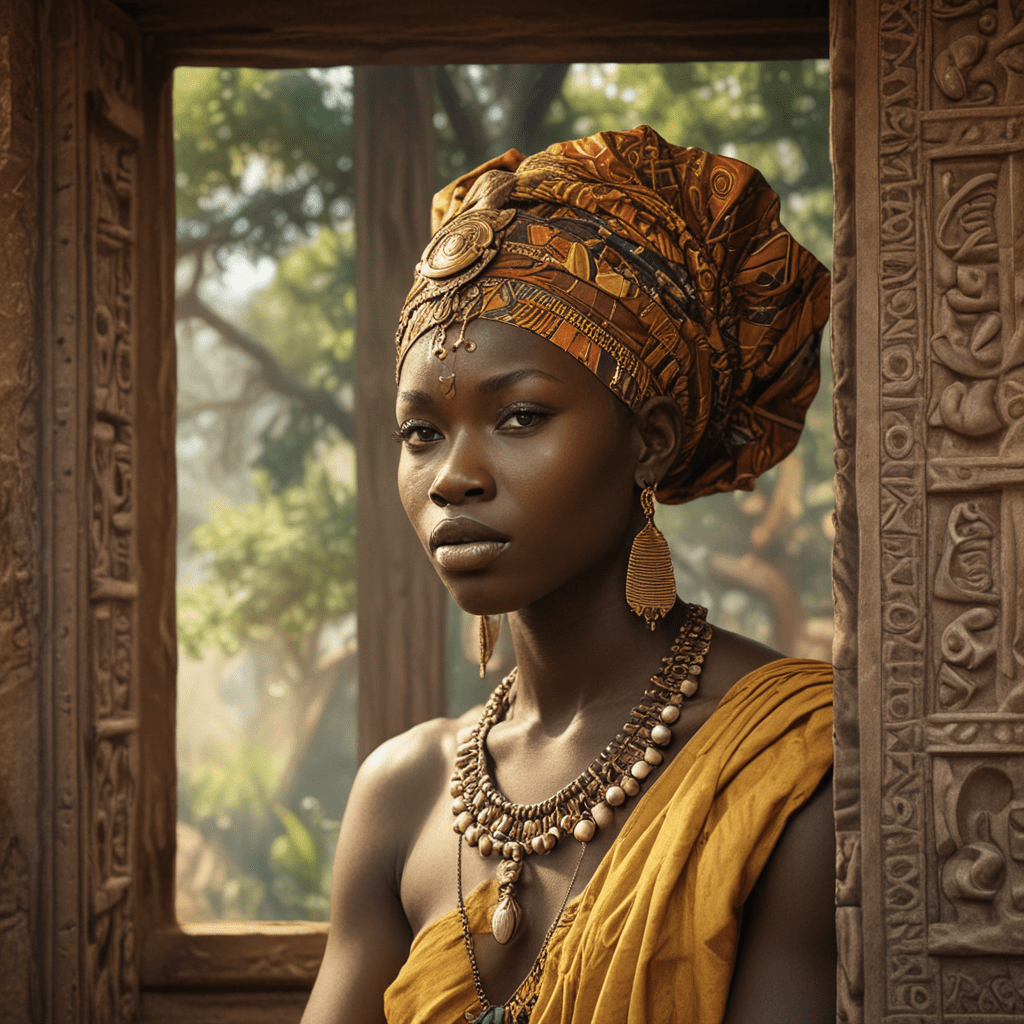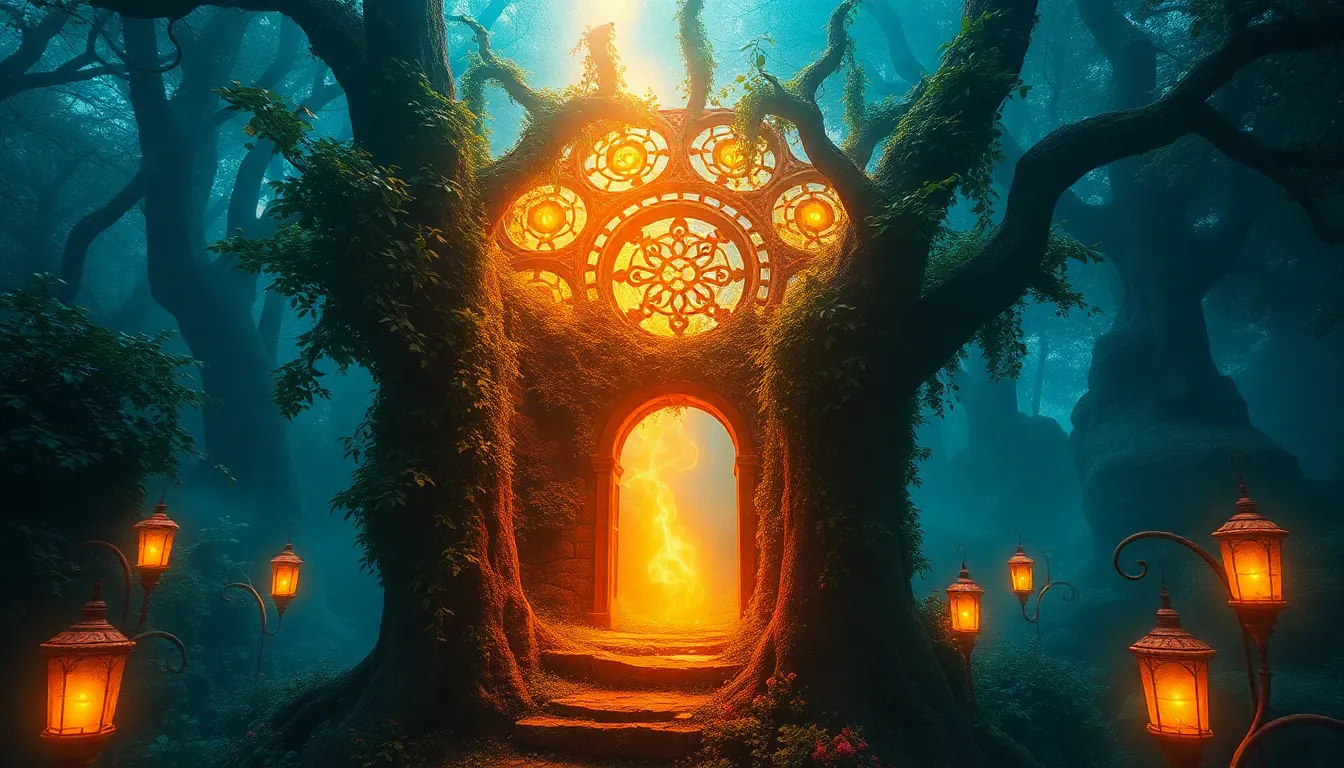African Mythology: A Window into Cultural Beliefs
Africa, the cradle of civilization, is a vibrant tapestry of diverse cultures, each with its own rich mythological heritage. African mythology offers a fascinating glimpse into the beliefs, values, and aspirations of these ancient societies. From creation myths to trickster figures, from heroes and heroines to animals with spiritual significance, African mythology provides a wealth of insights into the human experience.
I. Creation Myths: Origins and Cosmic Order
At the heart of African mythology lies a profound preoccupation with the origins of the universe and the establishment of cosmic order. Creation myths vary from culture to culture, but they often share common themes. In many traditions, the world is born from chaos through the actions of a supreme being or a group of deities. These creator gods and goddesses may shape the land, create humans, and establish the laws that govern the natural world.
II. Divine Beings: Gods, Goddesses, and Ancestors
African mythology is populated by a vast array of divine beings, including gods, goddesses, and ancestors. These supernatural entities play a significant role in the lives of mortals, offering protection, guidance, and wisdom. Gods and goddesses are often associated with specific domains, such as the sky, earth, or the underworld. Ancestors, on the other hand, are revered as intermediaries between the living and the spirit world. They are believed to watch over their descendants and provide them with support and guidance.
III. Trickster Figures: Embodiments of Cunning and Humor
One of the most intriguing characters in African mythology is the trickster figure. Tricksters are cunning, mischievous, and often defy societal norms. They play a vital role in mythology, using their wit and guile to expose hypocrisy, challenge authority, and bring about social change. Trickster figures are often depicted as animals, such as the fox or the hare, and their antics provide both entertainment and valuable lessons.
IV. Heroes and Heroines: Legends of Courage and Perseverance
African mythology is also replete with stories of heroes and heroines who embody courage, strength, and determination. These legendary figures often overcome great obstacles to achieve their goals, inspiring awe and admiration in their communities. Heroes and heroines are often associated with specific virtues, such as loyalty, sacrifice, and wisdom. Their stories provide moral guidance and serve as role models for future generations.
V. Animals in Mythology: Symbolism and Spiritual Significance
Animals play a central role in African mythology, serving as symbols of power, wisdom, and spiritual significance. Different animals are associated with specific qualities, such as the lion (strength), the serpent (wisdom), or the elephant (longevity). Animals are also believed to have supernatural powers and may act as messengers from the gods or spirits. Totem animals are particularly important in many African cultures, representing the connection between humans and the natural world.
VI. Rituals and Ceremonies: Connecting with the Supernatural
Mythology is closely intertwined with rituals and ceremonies in African cultures. These practices serve as a means of connecting with the supernatural world, honoring the gods and ancestors, and marking important life events. Rituals and ceremonies often involve music, dance, drumming, and other forms of artistic expression. They may also include sacrifices, offerings, and prayers. Through these rituals, individuals and communities seek guidance, protection, and blessings from the divine.
VII. Storytelling and Oral Traditions: Preserving Cultural Wisdom
Mythology is primarily preserved and transmitted through oral traditions in Africa. Stories are passed down from generation to generation through storytelling, songs, and proverbs. These oral traditions play a vital role in preserving cultural wisdom and values, educating younger generations, and strengthening community bonds. Storytellers are often regarded as guardians of cultural knowledge and are respected for their ability to entertain, inspire, and teach.
VIII. Influence on Arts and Crafts: Mythology as Artistic Inspiration
African mythology has significantly influenced the development of arts and crafts across the continent. Deities, heroes, and mythical creatures are often depicted in sculptures, paintings, textiles, and other forms of artistic expression. Traditional crafts such as pottery, basket weaving, and jewelry making often incorporate mythological motifs and symbols. By incorporating mythology into their art, African artisans not only preserve cultural traditions but also create beautiful and evocative works that connect the present with the past.
IX. Conclusion: The Enduring Legacy of African Mythology
African mythology is a vibrant and ever-evolving tapestry of beliefs, values, and cultural practices. It provides a window into the rich spiritual and imaginative worlds of African societies. From creation myths and divine beings to trickster figures and heroic legends, African mythology continues to inspire, entertain, and teach. Through its rituals, ceremonies, and oral traditions, mythology remains an integral part of African cultural identity and contributes to the continent's rich and diverse heritage.
FAQ: Frequently Asked Questions about African Mythology
What is the origin of African mythology?
African mythology has its roots in the oral traditions of indigenous African cultures, dating back thousands of years. It is believed to have evolved from the shared experiences, beliefs, and imaginations of ancient African societies.
How is African mythology transmitted?
African mythology is primarily transmitted through oral traditions, including storytelling, songs, proverbs, and rituals. Storytellers play a crucial role in preserving and sharing mythological knowledge within communities.
What are the common themes in African mythology?
Common themes in African mythology include the origin of the universe, the nature of divine beings, the role of trickster figures, heroic legends, the significance of animals, and the importance of rituals and ceremonies.
How does African mythology impact contemporary African culture?
African mythology continues to influence contemporary African culture in various ways, including art, literature, music, dance, and religious practices. It provides a source of inspiration and identity for African people and contributes to the continent's cultural diversity.
What is the importance of studying African mythology?
Studying African mythology is important for understanding the cultural beliefs, values, and traditions of African societies. It offers insights into the human experience, creativity, and the development of human thought and imagination.



